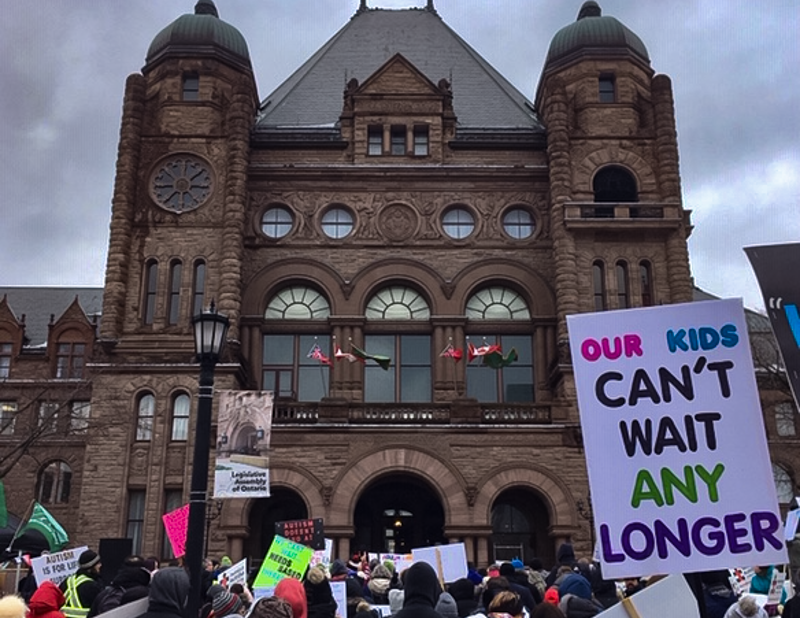
Phase One of the provincial government's "foundational family services" will begin Friday, August 7, 2020. It provides free virtual workshops for families with autistic children, but has been met with criticism from the autism community.
The province's Ministry of Children, Community and Social Services announced Tuesday that it would be offering new programs to families that are a part of the Ontario Autism Program. This is the first step in the Ford government's rehaul of autism care funding in Ontario.
New free services in phase one
- online workshops
- consultations and coaching sessions with clinical supervisors
"Services are based on a family's changing needs over time and their child's needs, strengths and developmental stage," the statement reads.
Rehaul of autism care system
Last February, the government announced that they would be switching how autism care funding is calculated. Money would now be distributed based on a patient's age and the income of their family or guardian. This was aimed at streamlining the process and reducing the huge waitlist of people who were yet to receive care.
This led to a public outcry as well as protests outside of Queen's Park and the offices of several local MPPs. Critics of the change said that the new structure could lead to families of severely disabled people not being able to pay for adequate care.
Furthermore, the Financial Accountability Office of Ontario (FAO) released a report this month that showed that the waitlist has continued to increase from 25,900 in early 2019 to 27,600 people this year. For scale, there are about 42,000 autistic children in the province of Ontario.
Familiar ground
Stacy Kennedy believes that this new program is just a repackaging of what existed two years ago. "First off, I have to point out that these are services that existed prior to the Ford government's changes to the Ontario Autism Program. That's really important to say out loud," she says.
Kennedy is a well-known autism advocate in Oakville. Her son has autism and she and her family have been on the funding waitlist for a long time.
"If you were a family on a waitlist in Halton prior to the Ford government making changes to the program in early 2019, this type of program was already available at ErinoakKids here in Oakville," she says.
She points out the descriptions of Phase One this year are nearly identical to those in the 2018 Ontario Autism Program Guidelines.

Waitlist
After this backlash to their 2019 tweaks, the government's plan changed to a "needs-based" program. Now, families would receive money for treatment depending on the severity of their case. This is exactly the same as the programs offered to families on the waitlist two years ago, according to Kennedy.
She believes that, while switching strategies back and forth over the past 15 months, the government has done little to nothing to bring waitlisted families any closer to receiving "core services" (in-person, in-depth consultations with therapists).
"Those foundational services, the seminars, workshops and 101 clinical work for parents from professionals were available prior and our family has already taken advantage of them," she says.
"People who have newly diagnosed kiddos with autism will find this information beneficial. For families like ours that have waited more than three years on the waitlist, it's a duplication of resources."
Calls for more funding
Kennedy and the other advocates who went out to protest last year believe that funds are needed to treat each case of autism individually. Last month's FAO report calculated that, to eliminate the waitlist entirely while still maintaining an appropriate level of care, yearly funding for the province's autism care strategy must double, from a projected $600 million in 2020 to $1.4 billion.
"This is an extension of health-care for my family. My son is autistic and he is awesome, but he needs extra help for things like eating," Kennedy says. "So, you know, to wait three years for a program and then have it changed, that was devastating."